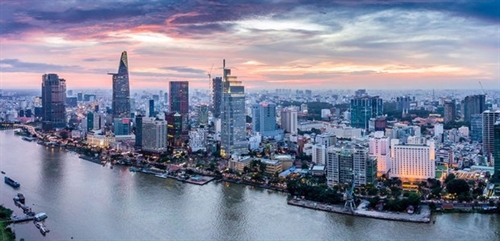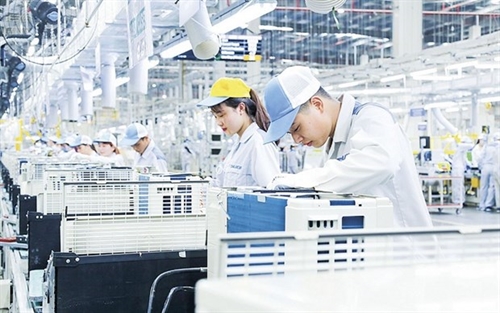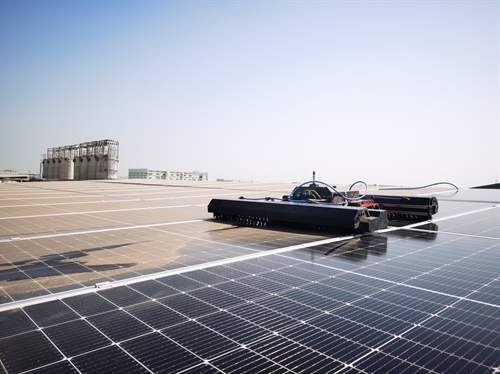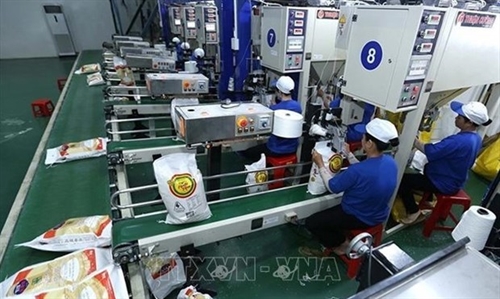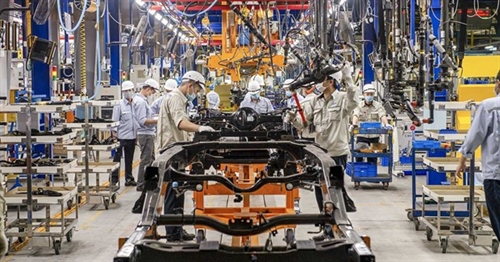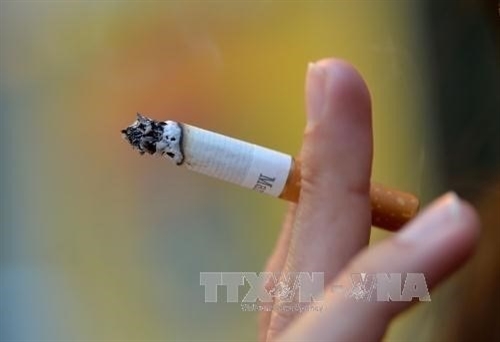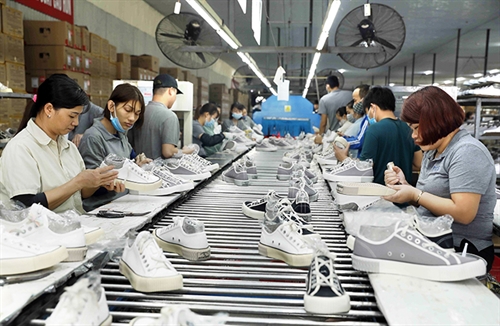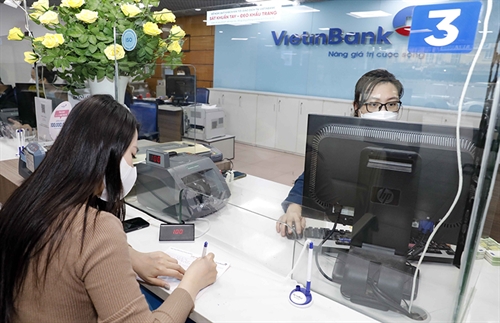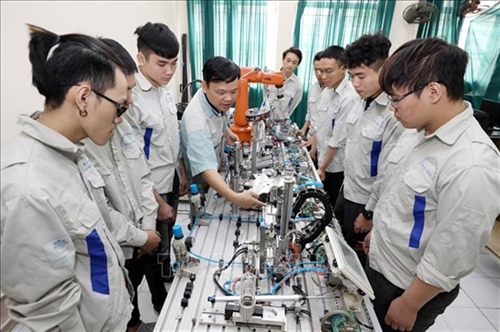The Government in early March issued two legal documents in an effort to mitigate adverse impacts on medical treatment activities that are caused by the lack of drugs and medical equipment in recent months.
Effective right on the dates of their signing, Decree 07, which revises a number of articles of Decree 98 of 2021, relaxes several provisions on the management and import of medical equipment, while Resolution 30/NQ-CP provides solutions to remove difficulties for health establishments pending the effect of the new Law on Medical Examination and Treatment and relevant documents.
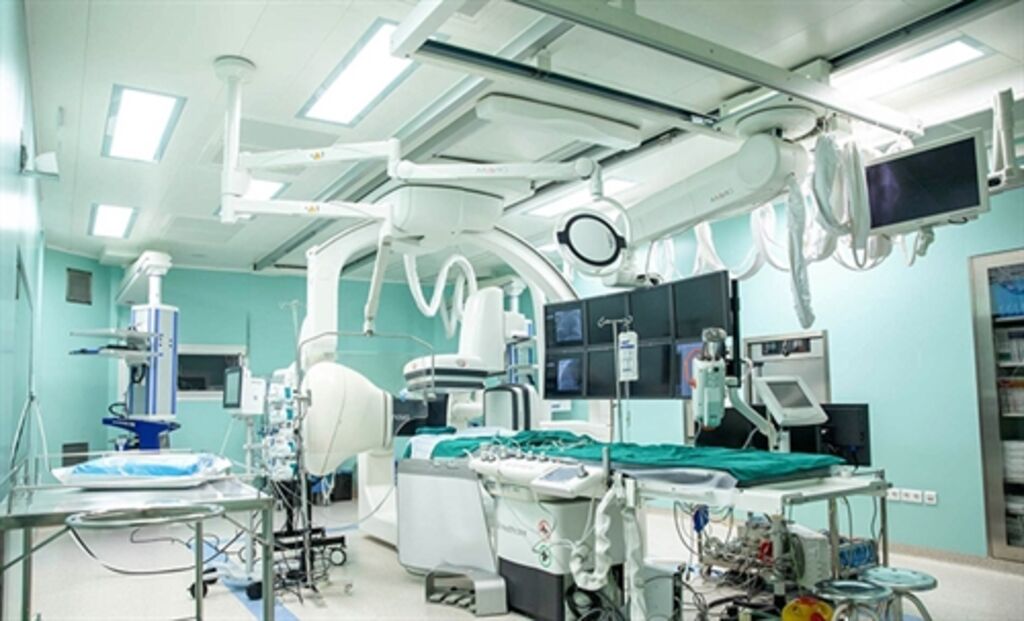 |
| An operating room with hi-tech equipment of Children Hospital 1 in Ho Chi Minh City__Photo: Photo: Dinh Hang/VNA |
Extension of validity period of import licenses and circulation registration numbers of medical equipment
Under Article 1.18 of Decree 07, the validity period of import licenses will be extended through the end of 2024 for:
(i) In vitro diagnostic biologicals, without restrictions on import quantity, in case such licenses were granted in the period from January 1, 2018, to December 31, 2021. For other medical supplies, the Decree keeps silent about quantity restrictions.
(ii) Medical devices that are not on the list of medical equipment requiring import licenses (except chemicals and insecticidal and germicidal preparations for household and medical use serving the sole purpose of sterilization of medical devices), and classified as class C or class D and published on the Ministry of Health (MOH)’s portal. In this case, neither quantity restrictions are imposed nor the MOH’s confirmations of medical devices are required, regardless of the time of posting information about such medical devices on the portal upon performance of customs clearance procedures.
Decree 07 provides more specifically the validity period of circulation registration numbers and circulation registration certificates. It says that circulation registration numbers issued before January 1, 2022, under Decree 36 of 2016 may be used indefinitely.
Meanwhile, circulation registration certificates for domestically-produced medical devices that were issued prior to January 1, 2022, are valid until their expiry dates. This provision also applies to in vitro diagnostic biologicals with circulation registration numbers issued between January 1, 2020, and December 31, 2021.
Circulation registration numbers of in vitro diagnostic biologicals that were issued in the period from January 1, 2014, to December 31, 2019, will be used through the end of 2024.
Particularly, Decree 07 adds Article 39a on disposal of medical equipment after revocation of their circulation registration numbers. It states that medical devices sold to health establishments or users may continue to be used until they are liquidated in accordance with law, or until their expiry dates, except medical equipment having irremediable defects that adversely affect the health of users.
For medical devices with circulation registration numbers revoked which have not yet been sold to users or health establishments, the owners of their circulation registration numbers will have to stop the circulation of such medical devices and recall them.
The Decree requires organizations possessing import licenses or circulation registration numbers to satisfy the law-specified requirements on quality, quantity, type and use purposes of medical devices.
The MOH will carry out inspection and revoke import licenses or circulation registration numbers of institutions violating regulations on management of medical equipment.
Easier price declaration of medical devices
Under Decree 98 of 2021, one of contents of price declaration of a medical device is the maximum selling price of the medical device corresponding to its configurations and technical properties based on unit of calculation. This has not only caused overload for the health sector but also made it difficult for medical device manufacturers and traders to declare all types of their medical devices.
To address the shortcoming, with revisions made under Article 1.10 of Decree 07, medical device manufacturers and traders are only required to declare prices of medical devices according to the contents and procedures provided in the law on price. The declaration may take the forms specified in the law on price or be made on the MOH’s portal.
The MOH will issue, update and modify the list of medical equipment subject to price declaration and provide guidance on information details of medical devices subject to price declaration based on reality and upon occurrence of abnormal price fluctuations that affect the supply of medical devices, payment ability of buyers or solvency of the Health Insurance Fund.
Timely solutions to the shortage of medical supplies
One day after issuing Decree 07, the Government adopted Resolution 30/NQ-CP amending Section 4 of Resolution 144/NQ-CP of 2022 regarding measures to ensure the supply of medicines and medical equipment for medical examination and treatment activities.
Previously, Section 4 of Resolution 144 allowed further payment of health insurance-covered medical examination and treatment costs for technical services using machinery provided by bid-winning contractors based on the contractor selection results approved before November 5, 2022, the effective date of this Resolution. Such payment may be made till the expiration of the contractual terms, for contracts signed before November 5, 2022, or till November 5, 2023, i.e., 12 months after the effective date of Resolution 144.
The problem here is that in the period from November 5, 2023, to January 1, 2024, the effective date of the new Law on Medical Examination and Treatment, concerned authorities will not know what provisions they can apply for payment of healthcare costs.
To deal with this, Resolution 30 permits continued payment of health insurance-covered costs for contracts signed on or after November 5, 2022, until new regulations on the issue are introduced (but not November 5, 2023, as stated in Resolution 144). The payment may continue to be made until the purchased medical supplies and chemicals are used up, in case of contract expiration.
Furthermore, Resolution 30 makes a change in the determination of prices of bidding packages in procurement of medical equipment and supplies.
The new rule no longer requires project owners, i.e., hospitals, to acquire at least three quotations for their medical equipment bidding packages. Instead, health establishments may post their invitations for offers with technical requirements on the MOH’s Portal or the Online Public Service System on Medical Equipment Management at http://dmec.moh.gov.vn or on their websites or in other forms specified in the bidding law. The posting period must last for at least 10 days. The project owners will set prices of bidding packages based on the quotations they have received.
In case of receiving one or two quotation(s) only, a health establishment may use such quotation(s) as a basis for setting prices of bidding packages.
The project owner is also allowed to take a quote directly from the supplier, in case there is only one supplier or in case it is impossible to buy medical equipment from another supplier for the reason of ensuring technological compatibility and meeting copyright protection requirements.
As remarked by Bach Mai Hospital Director Dao Xuan Co, with Resolution 30, hospitals in Vietnam may, for the first time, acquire quotations directly from suppliers upon purchase of exclusive medical equipment. This helps the hospitals apply technical advances as they can buy exclusive medical equipment from the sole supplier with the sole quotation, he said.
Another noteworthy provision of Resolution 30 is that, for medical equipment of the same type with different suppliers, health establishments may assign their scientific councils to set out appropriate configurations and technical properties of the medical equipment for use as a ground for acquiring quotations. This will help raise the quality of medical devices to be supplied, said Nguyen Tuong Son, Director of the MOH’s Department of Planning and Finance.
One more novel point lies in the provision stating that hospitals may use medical equipment they received as donations, gifts, contributions or aid, even medical devices of joint ventures with expired contracts, for which the procedures for ownership establishment have not yet been completed. Technical services performed with the use of these devices will be covered by the Health Insurance Fund. It is expected that millions of patients will benefit from this new policy, Xuan Co said.
